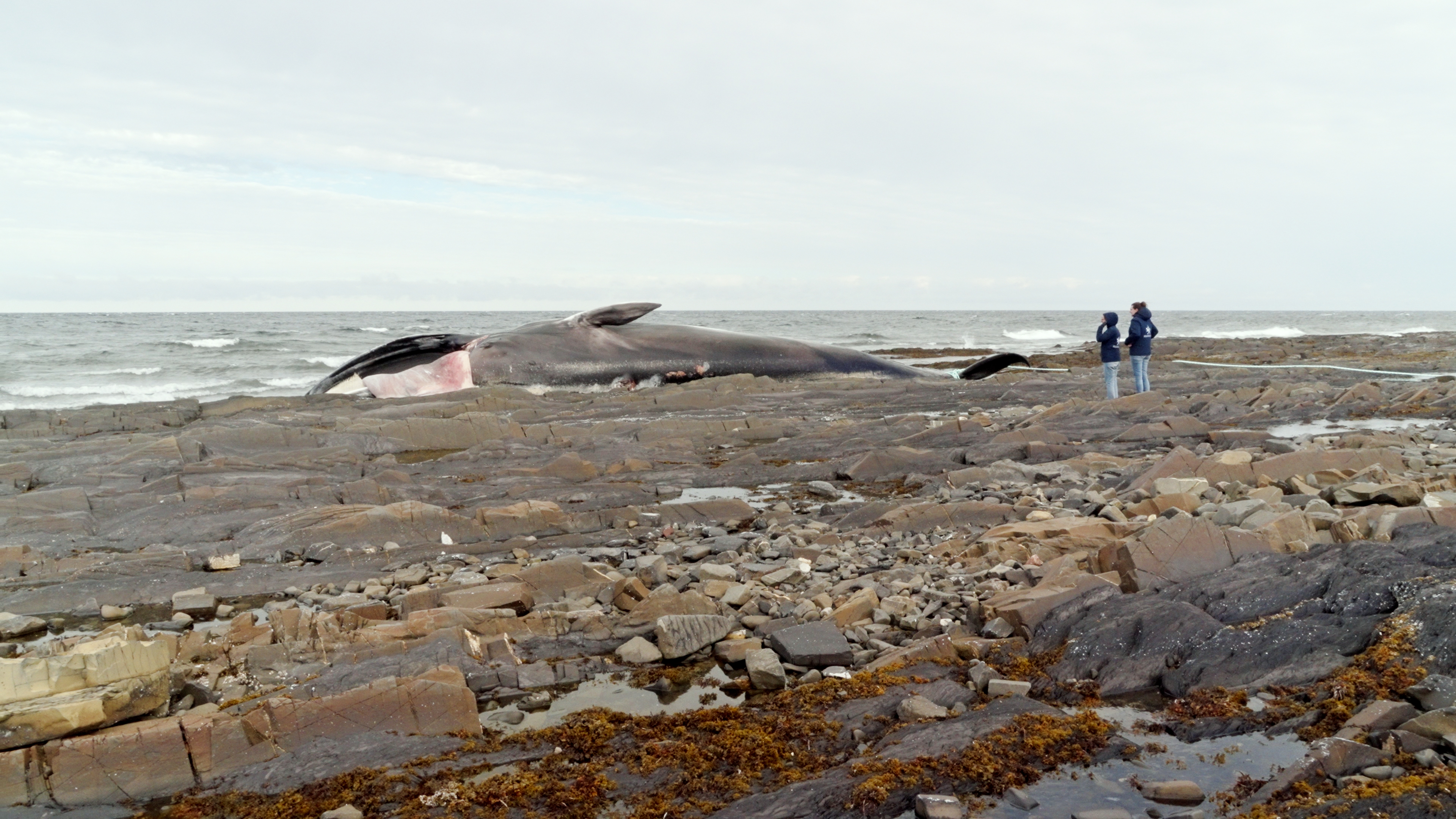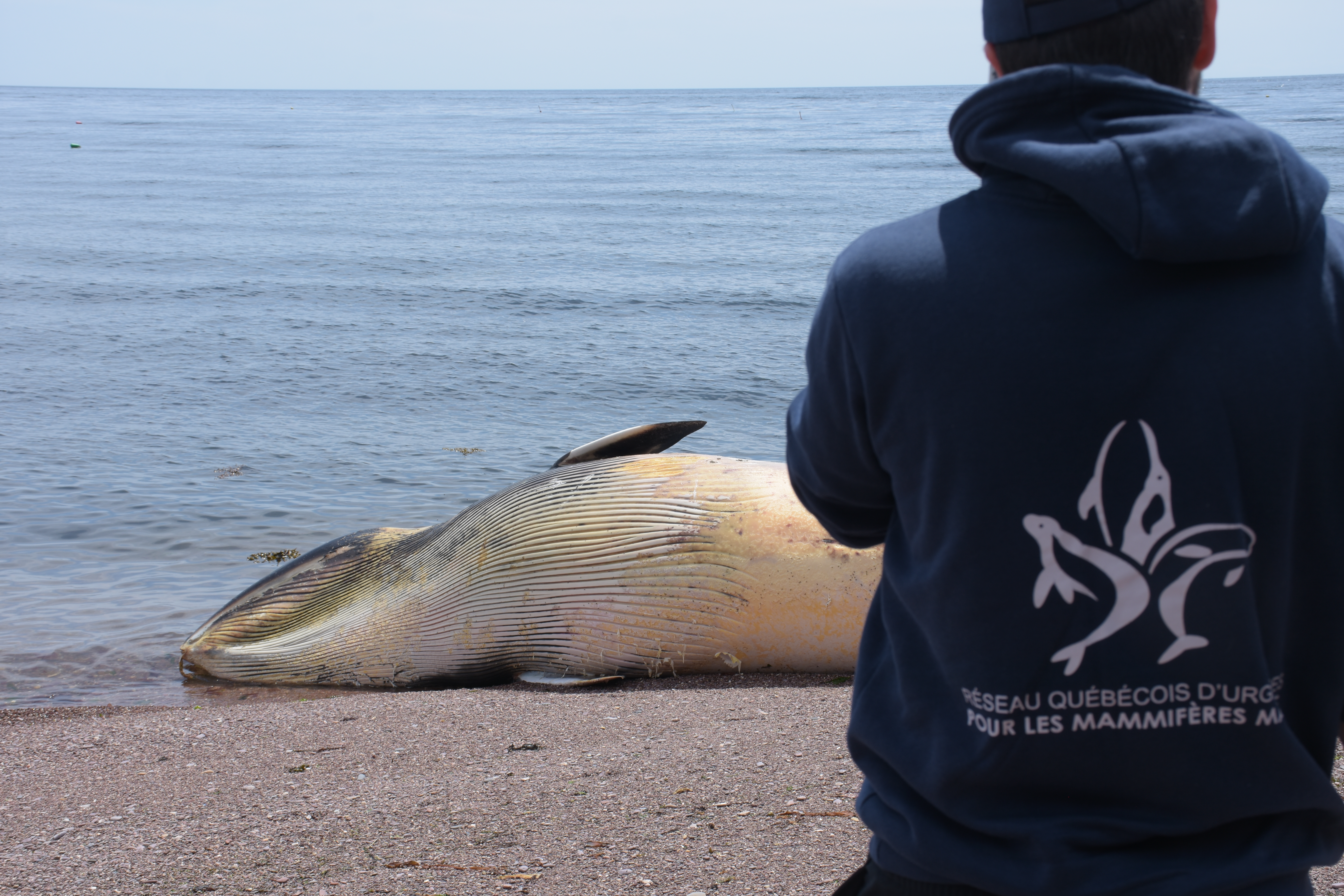On the morning of June 28, the municipality of Sainte-Flavie received a call from citizens who had discovered a beluga carcass along the beach. Municipal employees sent photos in to the 1-877-7baleine team. At a glance, experts confirmed that it was an adult beluga carcass in very good condition. It would therefore be a good “candidate” for a necropsy at the Université de Montréal’s faculty of veterinary medicine (FMV).
Beluga carcasses are found frequently in this part of the Bas-Saint-Laurent region, probably due to the prevailing currents that push carcasses along this shore. Thus, Marine Mammal Emergencies volunteers in this region are experienced and often prepared to respond at a moment’s notice. Which is a good thing, as the carcass was floating semi-submerged as the tide was about to reach its peak. It was thus critical to secure the carcass before it could be swept away by the current. Arriving on the scene a few minutes after being contacted, volunteers found that the beluga whale had since washed up onto the beach for good. All that was left to do was wait for those responsible for hoisting the carcass and placing it onto a trailer. The whale was sent to Saint-Hyacinthe shortly after noon.
[metaslider id=19815]
The intervention went smoothly: the machinery was able to easily access the beluga, an adult female measuring 3.80 m that will undergo a comprehensive necropsy tomorrow evening by the veterinary team of Stéphane Lair. Detailed study of the carcass might help determine the cause of mortality and/or reveal interesting information about the female’s condition. Was she pregnant? Was she lactating like the female found in Les Escoumins in late May? The results of the necropsy are forthcoming. This is the fourth beluga carcass studied this year.
Carcass recovery video
(credit: Émilie Simard, Marine Mammal Emergencies volunteer):





